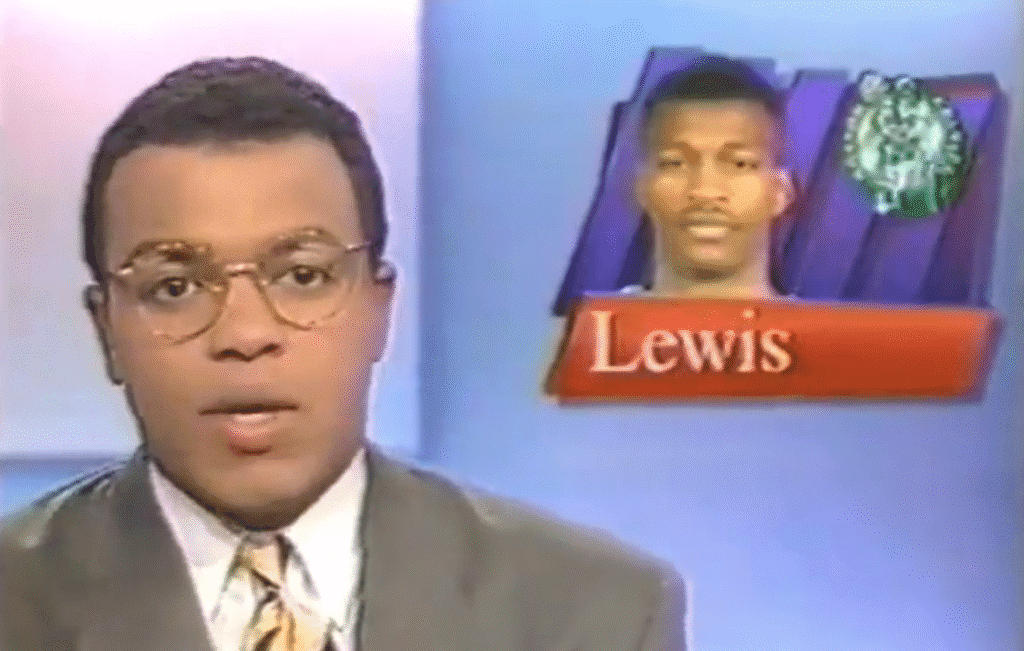
Reggie Lewis was meant to be the next great Boston Celtics superstar. By 1993, the 27-year-old had taken the mantle from an aging Larry Bird, emerging as the team’s captain and leading scorer. But on July 27 of that year, during what seemed like a routine off-season practice at Brandeis University, tragedy struck. Lewis collapsed on the court and never got back up. The shocking death of a young man in his prime sent waves of grief through the NBA and raised tough questions about health, medicine, and fate in professional sports.
The collapse was sudden. Lewis was working out with teammates when he stumbled, fell to the floor, and went into cardiac arrest. Trainers and staff rushed to his side, but the attempts to revive him failed. He was pronounced dead later that day. The cause was hypertrophic cardiomyopathy, a structural heart condition that had gone undetected. To those who knew him teammates, family, and fans the idea that the vibrant, soft-spoken forward could be gone in an instant was unthinkable.
This was not the first time Lewis had suffered heart trouble. Just months earlier, during a 1993 playoff game against the Charlotte Hornets, he collapsed on the parquet floor of the Boston Garden. At the time, he was helped to the bench and later diagnosed with a heart condition. Doctors differed on how severe it was. Some suggested that his career might be over; others believed it could be managed with treatment. Lewis himself insisted he would return, and his determination to continue playing reflected his quiet, relentless nature. That belief, however, collided with the reality of his condition in the worst possible way.

The impact of his death was immediate and far-reaching. In Boston, where basketball was more than a sport, Lewis had been seen as the bridge between eras the man who would carry the Celtics into a new generation after Bird, McHale, and Parish. His loss left not only a hole in the lineup but a wound in the city’s sports soul. Thousands turned out to pay respects, remembering him not only for his silky jump shot and defensive grit but also for his humility and community presence.
The tragedy also raised tough questions about the role of medical advice, player determination, and organizational responsibility. Reports later revealed conflicting medical opinions about whether Lewis should have continued playing. Some experts argued that he had been warned not to exert himself, while others believed his condition had been misdiagnosed. The controversy lingered for years, leaving a complicated layer to an already heartbreaking story.

For his teammates, Lewis’s death was devastating. Dee Brown, Sherman Douglas, and others openly wept as they spoke of their captain. Coaches described him as a natural leader, not flashy but steady, someone the team trusted on and off the court. His widow, Donna Harris-Lewis, became a central figure in keeping his memory alive, establishing charitable work in his name and preserving his legacy as more than just an athlete lost too soon.
The NBA, too, felt the weight. Lewis’s passing came just a few years after the tragic death of Len Bias, another Celtics star who never had the chance to fulfill his promise. For a franchise used to glory, two crushing losses within a decade made the 1990s a dark era. But out of that darkness came greater awareness about cardiac health in athletes. His death became a reminder that even the most finely tuned bodies can harbor unseen risks.
Today, Reggie Lewis’s name still resonates in Boston. The Reggie Lewis Track and Athletic Center in Roxbury stands as a tribute to his life, serving the community he loved and grew up in. To fans who saw him play, he remains the quiet leader who was just beginning to carve out greatness. To younger generations, he is a symbol of both promise and fragility proof that even the brightest stars can be extinguished without warning.
More than thirty years later, the pain of that July day has not faded entirely. But in every conversation about Celtics history, Lewis’s name comes up not just for how he died, but for how he played, how he led, and how he lived. His story remains one of the most tragic chapters in NBA history, but also one of its most human.